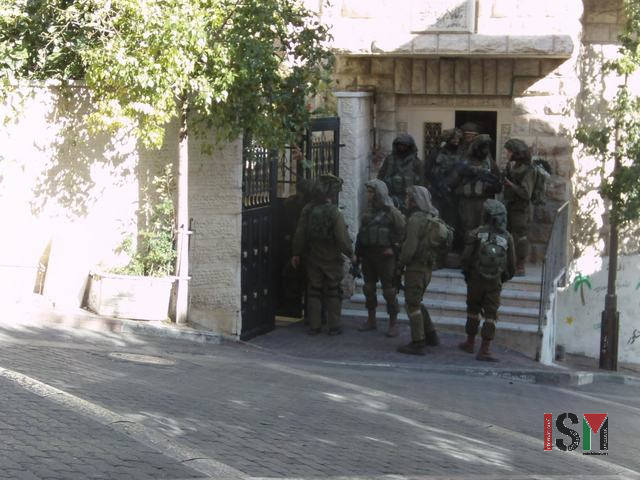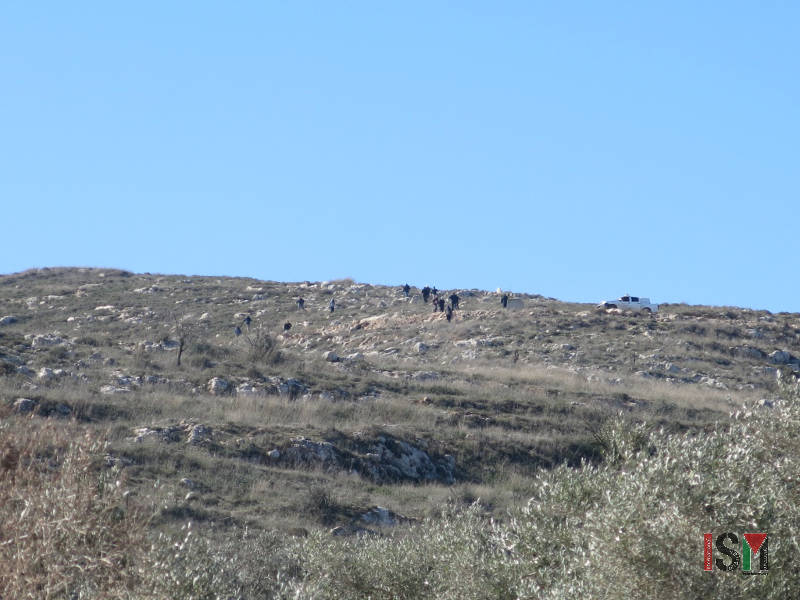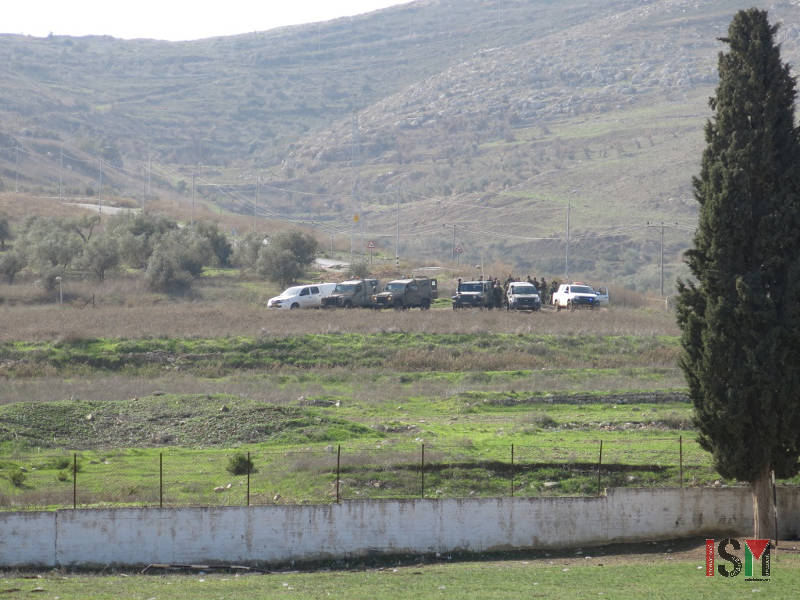Category: Features
-
Israeli army uses Palestinian neighborhood for military training exercises
25th November 2015 | International Solidarity Movement, al-Khalil Team | Hebron, occupied Palestine In Qaitun, a Palestinian Neighborhood of Hebron, situated in Oslo-defined Area H2, Israel has the authority for administrative and security control. Israeli administrative control results in Apartheid: Palestinians will never get permission for doing anything, as building, extending or repairing their houses,…
-
Fifteen masked settlers attack olive field in Burin
24th november 2015 | International Solidarity Movement, Nablus team | Burin, occupied Palestine On November the 24th at approximately 10 am, fifteen masked settlers from the Yitzhar settlement near Burin, south of Nablus, rushed toward an olive field where four Palestinians and two internationals were harvesting. Twenty minutes earlier, the Yitzhar security car, which is usually driven by the head…
-
Settlers from Yitzhar attack boys’ school in Burin and scare students
24th November 2015 | International Solidarity Movement, Nablus-team | Burin, occupied Palestine On Sunday at 10 am, November 22th, approximately twenty settlers from Yitzhar settlement attacked a boys’ school in the village of Burin, south of Nablus. According to local officials, the settlers attempted to raid and attacked the school with stones. Palestinian News and Info Agency (WAFA) reported…



